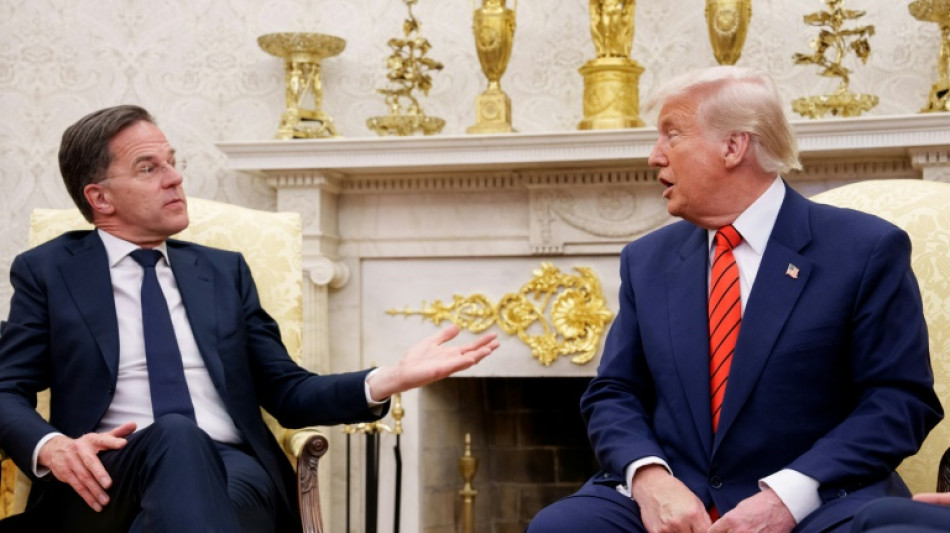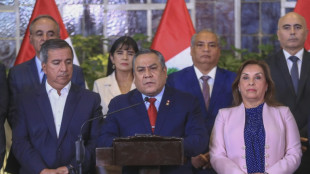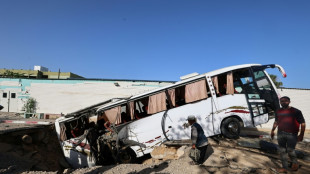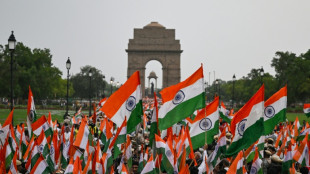

NATO hatches deal on higher spending to keep Trump happy
NATO foreign ministers meeting in Antalya from Wednesday will look to forge a compromise deal on ramping up defence spending as allies scramble to satisfy US President Donald Trump's demand to agree to five percent of GDP at a summit next month.
The two-day gathering in the sun-baked Turkish seaside resort comes as diplomatic intrigue swirls over a possible meeting across the country in Istanbul between Ukraine's president Volodymyr Zelensky and Russia's Vladimir Putin.
But it will be the internal wrangling over NATO's spending target that dominates the meat of the debate Thursday among foreign ministers with just over six weeks before leaders come face-to-face with Trump in The Hague.
Trump has piled on pressure ahead of the summit by insisting he wants NATO to agree to devote five percent of GDP to defence -- a level no member, including the United States, currently reaches.
The volatile former reality TV star has rattled European allies worried about the menace from Russia by threatening not to protect countries that, in his eyes, don't spend enough.
In a bid to prevent him blowing up the alliance, NATO boss Mark Rutte has floated a proposal for allies to commit to 3.5 percent of direct military spending by 2032, as well as another 1.5 percent of broader security-related expenditure.
That would hand Trump the headline figure he's demanding while giving enough wiggle room to European allies who are struggling just to reach NATO's current spending threshold of two percent.
"Trump will be able claim victory and say that he got NATO to spend five percent," one senior NATO diplomat, talking on condition of anonymity to discuss internal deliberations.
"In reality it will be more complicated than that -- but that will be the essential political message from the summit."
- 'Not a grab bag' -
Diplomats say that Rutte's plan, which hasn't been made public, envisions ratcheting up direct defence spending by 0.2 percent each year over the next seven years until countries hit the 3.5 target.
The other 1.5 percent of more loosely defined spending could include a wide-range of areas including infrastructure, cyber defence, border controls and even support for Ukraine.
Diplomats admit it's a budgetary sleight-of-hand aimed at softening the blow for countries, such as Canada, Spain and Italy, who are still only just limping towards two percent.
They say some countries are pushing for more time to reach the new target and to stretch the broader spending parameters as wide as possible.
But European heavyweights France and Germany seem on board -- especially as Berlin has opened the doors for a major splurge on defence.
And the main thing for now appears the United States is already throwing its weight behind the plan -- making officials optimistic of reaching a deal.
"This new Hague investment pledge or plan is going to include all of the capability targets necessary for NATO allies to deter and defend, but it also includes things like mobility, infrastructure, necessary infrastructure, cyber security," US NATO ambassador Matthew Whitaker said.
"It is definitely more than just missiles, tanks and howitzers, but at the same time, it's got to be defence-related. It is not a grab bag for everything that you could possibly imagine."
- Short and sweet? -
Looming beyond the discussion on money are warnings from the United States that it could look in the future to pull out forces from Europe to focus on the threat from China.
For now Washington says no firm decisions have been taken and it is conducting a review of its deployments worldwide.
"We are having ongoing discussions with our allies to make sure that there are no security gaps," Whitaker said. "We're asking our European allies to be more capable and to be equal partners."
With a deal in the offing on spending, NATO is keen to avoid any other bones of contention potentially spoiling the summit.
There is still no agreement on inviting Zelensky -- who has a rocky relationship with Trump -- to The Hague and it looks likely to depend on where things stand by then with the US push to end Russia's war.
Meanwhile diplomats say there is only likely to be one full session with leaders and a short declaration that avoids thorny issues such as Kyiv's membership push.
M.Keller--BP


